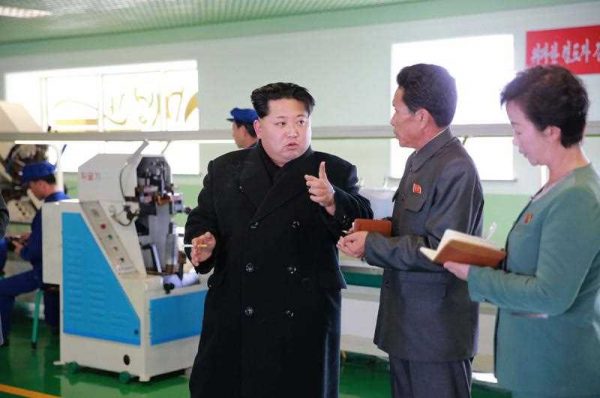Black markets have long existed in North Korea, but the growth of formal markets signals progressive changes in the North Korean economy. So how far can these markets go?
In the past, North Korea has attempted to exercise small-scale reforms in order to make up for the loss of national income due to the collapse of the Soviet Bloc as well as increasing international sanctions. In 1991, it established the Rason Special Economic Zone (SEZ) — based on the Chinese reform structure — as a means to foster economic development through foreign investments.
The Kim Jong-il government began experimenting with economic liberalisation by permitting the formation of unofficial markets in 2002. In July of the same year, the regime launched its Economic Management Improvement Measures, which increased the autonomy of entrepreneurs and farmers. This was enhanced under the Kim Jong-un administration in 2013.
At a glance, these reforms represent a harbinger for economic transformations in North Korea. It is often predicted that North Korea will soon follow China and Vietnam’s lead. But these small-scale changes do not yield a comprehensive picture of North Korea. The changes have been temporary and ineffective. It is essential to look beyond economic reforms, not only to understand Pyongyang’s incentives behind such modifications, but also to examine the impact of economic liberalisation on regime survival.
During the 1990s, the North Korean distribution system collapsed, paving the way for the formation of nationwide underground markets. These markets soon replaced the government’s role of supporting the people and became the backbone of the unofficial economy. Some 60 per cent of the population earned their living from underground trade and 80 per cent of household income originates from black markets.
Although the government continuously denies the existence of a market economy, it widely engages with private businesses. It leases spaces in markets, levies heavy taxes on merchants and dictates the type and number of goods that can be sold. These regulations are to provide party cadres with a stable income and to strengthen the regime’s control over the unofficial economy. In this context, government reforms only serve as a justification for government interference by legalising existing economic institutions.
While allowing small-scale restructuring to take place, the government clearly marks a line between economic reform and party survival. It understands that markets grow disproportionately to its own power. Liberalisation would involve the government easing travel restrictions, tolerating greater freedom in information flows and allowing foreign firms to exert influence on domestic politics.
The legitimacy of the North Korean regime is largely based on the people’s belief in the righteousness of the Communist revolution and the Kim dynasty’s cult of personality. As such, outside information about how North Korea could be prosperous and democratic under an alternate political system would shake such beliefs to their cores.
The impact of Détente on Soviet bloc politics and society also makes Pyongyang more hesitant to pursue an open economic policy with the outside world for fear of political oppositions. This is because Détente stoked domestic resistance and civil rights protests in the Soviet Union, which North Korea wants to avoid. Increasing contacts between North Korea and its trade partners (especially South Korea) may encourage civil society to demand more freedom and political reform. This could put the regime’s survival in serious danger.
More importantly, a sudden change in economic situation may alter the distribution of power within the party system. Since Kim Jong-il’s death, the party has been divided between the ‘moderate’ faction, which favours economic openness, and the ‘hardline’ faction, led by the Organisation and Guidance Department and the military. The hardline faction seeks to maintain the ‘military first’ policy by continuing nuclear weapons development. Economic liberalisation may shift the balance of power against the hardliners, which could put Kim Jong-un’s position at risk.
The regime prefers political stability and unity to economic reforms. Pyongyang will not pursue any large scale reforms as economic liberalisation would likely undermine the stability of the regime.
In the meantime, it is likely that the North Korean regime will keep on walking a thin line between collapse and revolution by turning a blind eye to markets — as long as they do not pose serious threats to its survival. The government will tolerate some degree of market autonomy that can safeguard national stability and provide party cadres with enough bribes to stay loyal to Pyongyang.
Signs of changes in the market system should be interpreted as the regime attitude towards private businesses. It is also an indication of the current balance of power between the moderate and hardline factions within the party. Still, no matter how small these changes are, they shed some light on life in the Hermit Kingdom. North Korean watchers must patiently continue following these changes for future analysis.
Khang Vu is a North Korea researcher at Colby-Sawyer College, New London, New Hampshire.

